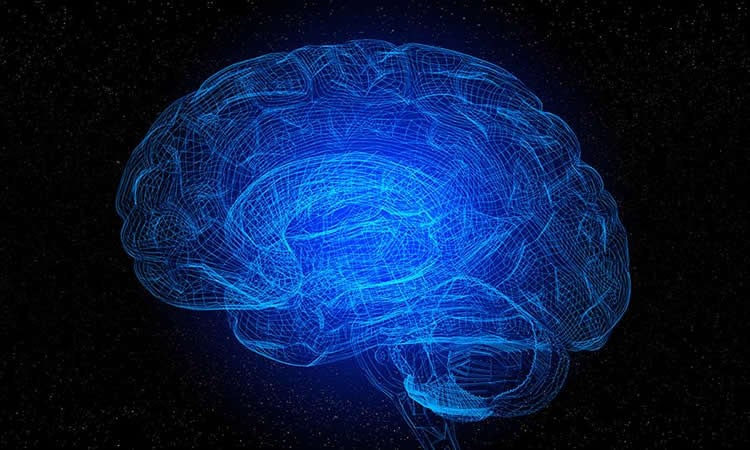Summary: Entrainment devices not only enhance theta wave activity, they also may help boost memory performance, a new study reports.
Source: UC Davis.
The entrainment of theta brain waves with a commercially available device not only enhances theta wave activity, but also boosts memory performance. That’s according to new research from the Center for Neuroscience at the University of California, Davis, published recently in the journal Cognitive Neuroscience.
Electrical activity in the brain causes different types of brain waves that can be measured on the outside of the head. Theta waves occur at about five to six cycles per second, often associated with a brain that is actively monitoring something — such as the brain of a rat navigating a maze.
In an earlier study, Charan Ranganath, professor of psychology, and colleagues at the Center for Neuroscience found that high levels of theta wave activity immediately before a memory task predicted better performance.
“Entrainment” devices use a combination of sound and lights to stimulate brain wave activity. The idea is that oscillating patterns in sensory inputs will be reflected in brain activity. The devices are marketed to address a range of problems such as anxiety, sleep issues, “low mood” and learning. However, there is very little published scientific evidence to support these claims.
Brooke Roberts, a postdoctoral researcher in Ranganath’s lab, obtained a theta wave entrainment device and decided to test it. She had 50 volunteers either use the device for 36 minutes, or listen to 36 minutes of white noise, then do a simple memory test.
Improved memory performance
The subjects who had used the device showed both improved memory performance and enhanced theta wave activity, she found.
Roberts showed her results to Ranganath, who was intrigued but cautious and suggested new controls. They repeated the experiment with another 40 volunteers, but this time the control group received beta wave stimulations. Beta waves are a different type of brain wave pattern, occurring at about 12 to 30 cycles per second, associated with normal waking consciousness.
Once again, theta wave entrainment enhanced theta wave activity and memory performance.
Ranganath’s lab also conducted a separate study using electrical stimulation to enhance theta waves. However, this actually had the opposite effect, disrupting theta wave activity, and temporarily weakened memory function.
Ranganath said he’s surprised the devices work as well as they appear to do.

“What’s surprising is that the device had a lasting effect on theta activity and memory performance for over half an hour after it was switched off,” he said.
There is debate among neuroscientists over the function and role of these brain waves. Some researchers argue that they are simply a product of normal brain function with no particular role. Ranganath, however, thinks that they may play a role in coordinating brain regions.
“The neurons are more excitable at the peak of the wave, so when the waves of two brain regions are in sync with each other, they can talk to each other,” he said.
Funding: The work was supported by a Guggenheim Fellowship and a Vannevar Bush Fellowship from the Office of Naval Research.
Other authors on the paper are Alex Clarke, now at the University of Cambridge and Anglia Ruskin University, U.K.; and Richard Addante, now at California State University San Bernardino. Roberts is now a research scientist at QUASAR Inc., San Diego.
Source: Andy Fell – UC Davis
Publisher: Organized by NeuroscienceNews.com.
Image Source: NeuroscienceNews.com image is adapted from the UC Davis news release.
Original Research: Abstract for “Entrainment enhances theta oscillations and improves episodic memory” by Brooke M. Roberts, Alex Clarke, Richard J. Addante & Charan Ranganath in Cognitive Neuroscience. Published September 10 2018.
doi:10.1080/17588928.2018.1521386
[cbtabs][cbtab title=”MLA”]UC Davis”Brain Wave Device Enhances Memory Function.” NeuroscienceNews. NeuroscienceNews, 23 October 2018.
<https://neurosciencenews.com/brain-wave-memory-function-10075/>.[/cbtab][cbtab title=”APA”]UC Davis(2018, October 23). Brain Wave Device Enhances Memory Function. NeuroscienceNews. Retrieved October 23, 2018 from https://neurosciencenews.com/brain-wave-memory-function-10075/[/cbtab][cbtab title=”Chicago”]UC Davis”Brain Wave Device Enhances Memory Function.” https://neurosciencenews.com/brain-wave-memory-function-10075/ (accessed October 23, 2018).[/cbtab][/cbtabs]
Abstract
Entrainment enhances theta oscillations and improves episodic memory
Neural oscillations in the theta band have been linked to episodic memory, but it is unclear whether activity patterns that give rise to theta play a causal role in episodic retrieval. Here, we used rhythmic auditory and visual stimulation to entrain neural oscillations to assess whether theta activity contributes to successful memory retrieval. In two separate experiments, human subjects studied words and were subsequently tested on memory for the words (‘item recognition’) and the context in which each had been previously studied (‘source memory’). Between study and test, subjects in the entrainment groups were exposed to audiovisual stimuli designed to enhance activity at 5.5 Hz, whereas subjects in the control groups were exposed to white noise (Expt. 1) or 14 Hz entrainment (Expt. 2). Theta entrainment selectively increased source memory performance in both studies. Electroencephalography (EEG) data in Expt. 2 revealed that theta entrainment resulted in band-specific enhancement of theta power during the entrainment period and during post-entrainment memory retrieval. These results demonstrate a direct link between theta activity and episodic memory retrieval. Targeted manipulation of theta activity could be a promising new approach to enhance theta activity and memory performance in healthy individuals and in patients with memory disorders.






